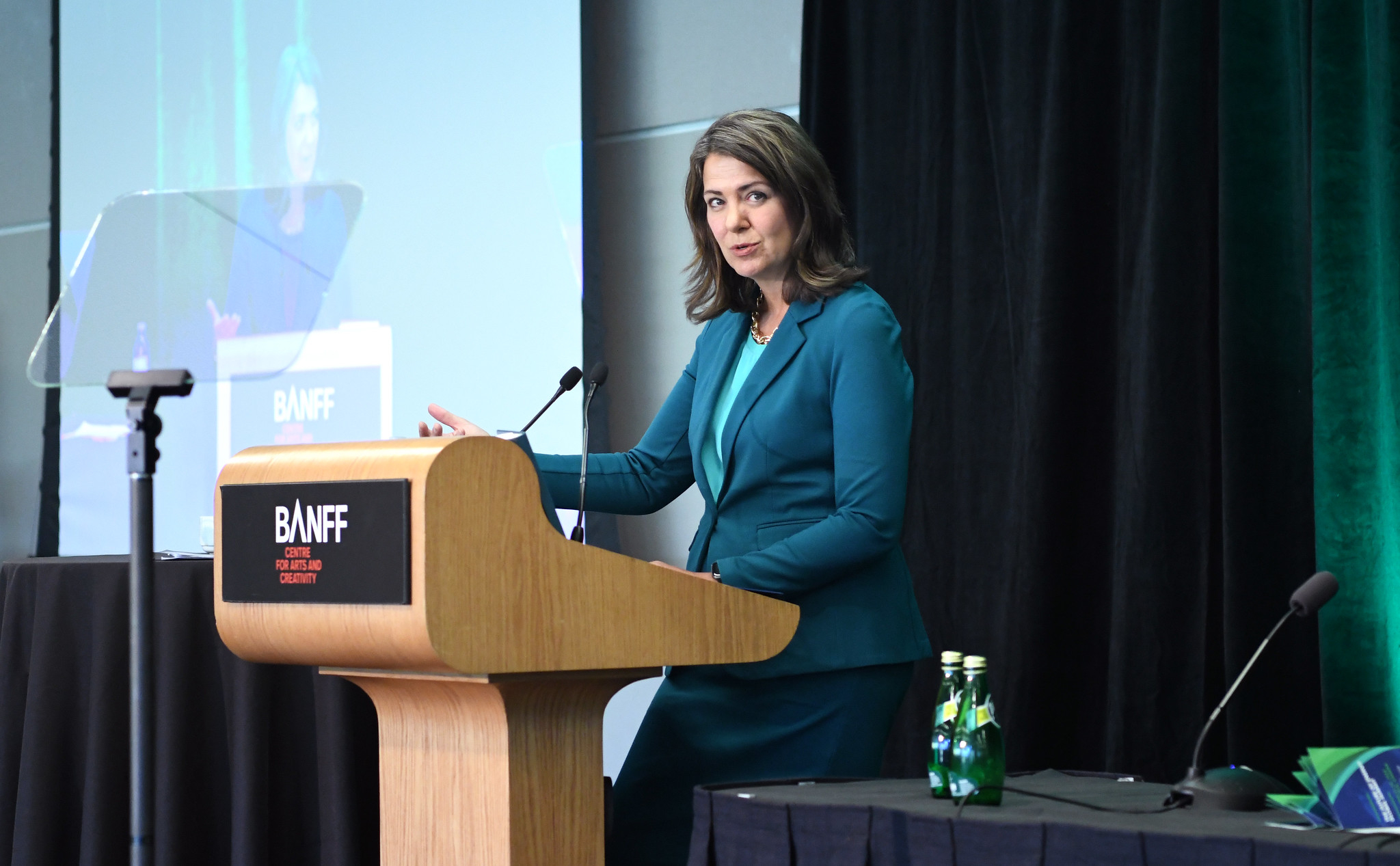The alliance head of Canada’s major oilsands producers says he is "a bit mystified" by Alberta Premier Danielle Smith’s reaction to the federal government's plan to cut methane emissions.
Commenting on Smith’s staunch objections to the methane plan, Kendall Dilling, president of the Pathways Alliance, added: “Let’s all get on the same page.” Dilling’s comments came Wednesday during a question-and-answer session at the annual UN climate change negotiations in Dubai.
Smith wasted no time calling the draft methane regulations “costly, dangerous and unconstitutional” in a statement issued shortly after the government released them Monday morning.
While Smith attacked the regulations, Tristan Goodman, president of the Explorers and Producers Association of Canada, said the reductions are “achievable” and several industry executives noted their success in reducing methane emissions, reported the Calgary Herald.
“When the oil guys basically shrug and say, ‘Yeah, this is entirely manageable,’ it's an indication that it's entirely manageable,” said Keith Stewart, a senior energy strategist with Greenpeace Canada.
“You have to ask why the provincial premier would be up in arms given that the federal government has basically given her everything her province was asking for, as part of the discussions, the same target, the same kinds of flexibility,” said Stewart.
Alberta, Saskatchewan, oil and gas companies and lobby groups have pulled no punches when it comes to lobbying and advertising against the federal government’s long-promised cap on oil and gas production emissions. But so far, the industry has not shared the outrage about methane regulations exhibited by Smith and Saskatchewan Premier Scott Moe.
Pathways Alliance “has no hesitation” fighting issues like the oil and gas emissions cap, but one of the group’s main objectives is to secure public funding for its $16.5-billion carbon capture and storage project, noted Stewart. So, “they’re not trying to fight them everywhere,” he added. “I think, to a certain extent, when Premier Smith sort of freaks out on something that isn't a problem for the oil industry … it's a little awkward for them because their strategy has been, 'We'll do stuff as long as you pay for it.'”
The federal government’s proposed changes would crack down on oil and gas companies’ practice of venting or flaring methane from operations. The new rules would also tighten emissions-monitoring requirements to reduce national methane emissions by at least 75 per cent below 2012 levels by 2030. Alberta’s Emissions Reduction and Energy Development Plan indicates the province has a similar goal.
Released in April, the province’s plan says Alberta Environment and Protected Areas will “assess potential pathways to achieve a provincial 75 to 80 per cent methane emission reduction” from 2014 levels in the conventional oil and gas sector. It will do this using a “combination of regulations, market-based incentives and programs, complemented by continuous improvement in measurement and reporting.”
Alberta is ahead of the curve by its own measure. The province achieved its 2025 methane reduction goal three years early. In late November, the provincial government announced methane emissions were reduced 45 per cent relative to 2014 levels, a milestone the government originally targeted for 2025. About 40 per cent of the methane released in Canada comes from oil and gas facilities, according to the federal government.
Reducing methane emissions is seen by governments, scientists and experts as low-hanging fruit to limit global temperature rise, largely because it is cost-effective. Methane, the main component of natural gas, is the second largest contributor to global temperature rise after carbon dioxide. It accounts for about 30 per cent of the rise in global temperatures since the Industrial Revolution, according to the International Energy Agency. This planet-warming greenhouse gas is short-lived but potent. It is 86 times more powerful than carbon dioxide in its first 20 years in the atmosphere.
Pathways Alliance doesn’t list a methane reduction target, but some of its six members — Canadian Natural, Cenovus, Imperial, MEG Energy, Suncor and ConocoPhillips Canada — have company targets. For example, this summer, Cenovus announced it aims to reduce methane emissions in its upstream operations by 80 per cent by year-end 2028 from a 2019 baseline. Altogether, these six companies operate about 95 per cent of Canada's oilsands production.
“Oilsands production doesn't have a big methane problem,” Stewart noted. “It's conventional gas, fracking and natural gas where the big methane emissions are, so to a certain extent, the Pathways group is less concerned about methane.”
That said, it's still a quick, easy way for oilsands companies to reduce some emissions, he added. Although the bulk of their production is from oilsands, they still have conventional oil and gas operations.
The oil industry more broadly is shifting from “opposing everything, to getting behind solutions that don't require them to change who they really are,” said Stewart. At COP28, 50 oil and gas companies pledged to reach near-zero methane emissions by 2030.
To Stewart, this shift to a “more sophisticated strategy” indicates the oil industry is “losing ground because of concern over climate change.”
— With files from John Woodside
Natasha Bulowski / Local Journalism Initiative / Canada’s National Observer
In the long run, reducing
In the long run, reducing methane emissions from oil production and the methane business itself are kind of a small extra expense, really. I mean yes, in a short term sense they're cost effective. But which is cheaper--
1. Eliminating the natural gas and oil businesses
2. Reducing methane emissions from the natural gas and oil businesses, and THEN eliminating them
The first one is cheaper, right? Which is not to say I oppose regulating methane. Just, let's remember it's not worth paying them to do it. If we've got money to spend we should spend it on the transition itself, subsidizing heat pumps or whatever, not on helping disgustingly profitable corporations keep destroying the planet a little longer.






Comments